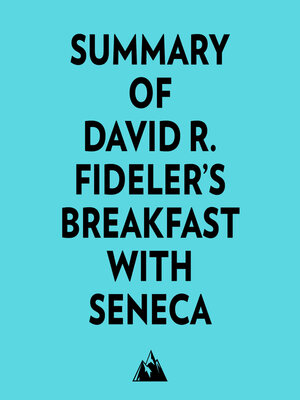
Sign up to save your library
With an OverDrive account, you can save your favorite libraries for at-a-glance information about availability. Find out more about OverDrive accounts.
Find this title in Libby, the library reading app by OverDrive.



Search for a digital library with this title
Title found at these libraries:
| Loading... |
Please note:This audiobook has been generated using AI Voice. This is a companion version & not the original book. Sample Book Insights: #1 Seneca's letters were written for a wider circle of readers, but they were a cleverly designed introductory course to his own Stoic philosophy. Behind this entire project was a belief in the deep and transforming power of friendship. #2 Seneca was a Stoic mentor to Lucilius, helping him to deal with his anxiety by challenging him to rethink his underlying beliefs. He did this by helping his readers to reconsider their underlying beliefs. #3 The best way to enjoy each other's company and have meaningful conversations is to get together with a friend. But that's not always possible. In ancient times, a letter was an instrument to build, maintain, and strengthen friendships. #4 The most basic level of friendship is based on mutual advantage. We can see these kinds of advantage-friendships resembling connections you might make at a networking event for work. These are the most shallow and short-lived types of friendship.






